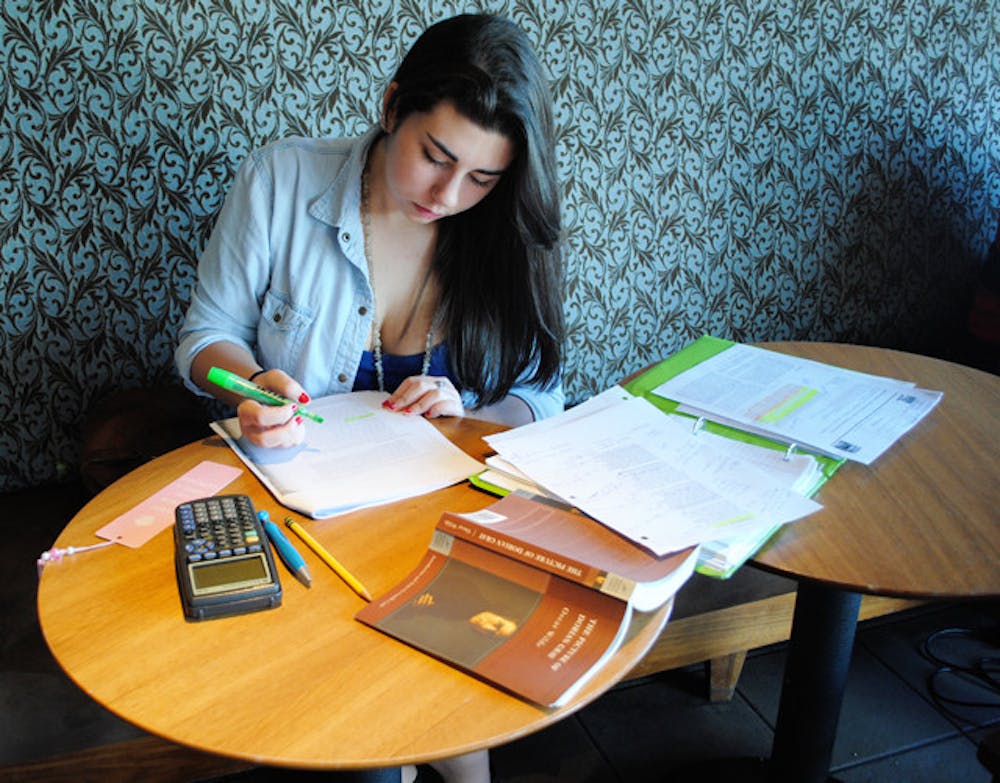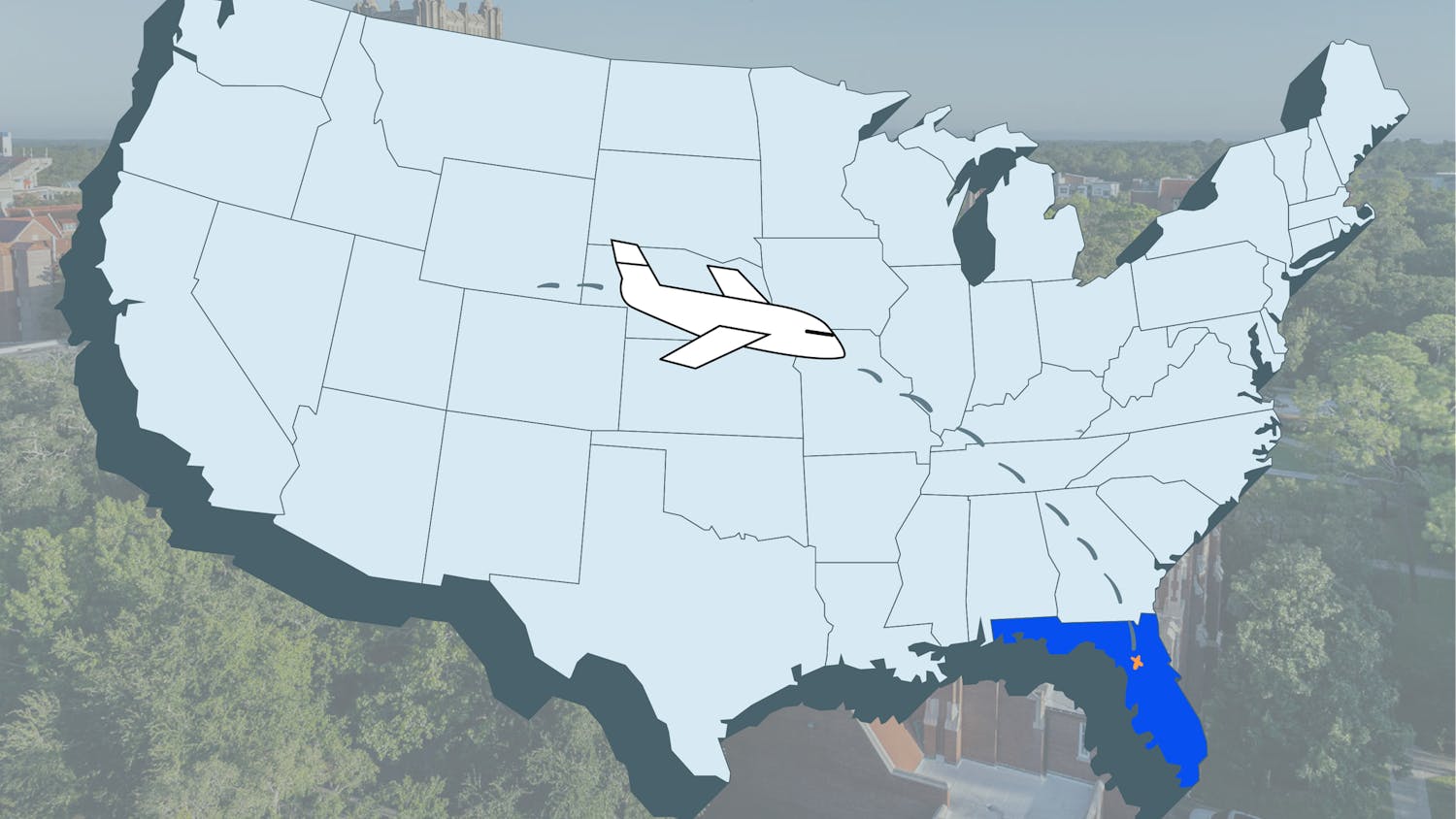Marisol Diaz is hungry to succeed.
The 17-year-old high school senior is pulling a 5.3 weighted GPA at South Dade Senior High School in Homestead.
On her first try, she earned an SAT score that could have gotten her into Boston University, one of her top choices for college. Marisol opted to take it again because, she said, she thought she could do better.
But while she was studying, Marisol had been putting off doing community service hours for the Bright Futures Scholarship Program, which saw changes to its qualifying requirements over the summer.
Now she may not receive the scholarship at all.
The community service requirements for both the Florida Medallion Scholars and the Florida Academic Scholars awards have increased from zero hours to 75 hours and 75 to 100 hours, respectively. While Marisol is academically eligible for the Academic Scholars Award (previously known as the 100 percent-tuition award), she hasn't yet met the service requirements for the smaller Medallion Scholars Award.
With a little less than a month to go before applications are due, Marisol Diaz is still short by 25 hours.
She'll probably start tutoring underprivileged kids through a local program, she said, but it's going to be difficult on top of all the work she has to do for her classes in the International Baccalaureate Program at South Dade.
She said she sometimes stays up until 3 a.m. doing homework, only to rise a few hours later so she can make it to school at 7:20 a.m.
As of mid-October, Marisol said she had completed about 50 hours of Creativity, Action, Service activities, part of the IB program's graduation requirements.
The IB program requires students to complete 150 hours during their junior and senior years to graduate.
She said she hadn't completed the hours already because she spent most of her junior year adjusting to the rigorous IB program. She put it off over the summer as well, thinking she would have time to complete the community service later.
The deadline for submitting hours for IB graduation isn't until spring of the graduation year.
However, the deadline for submitting Bright Futures applications, including completed community service hours, is Dec. 1.
"It's really depressing," she said. "The only reason I got into IB was to look better on my transcripts."
***
Bright Futures is footing at least part of the tuition bill for 97 percent of in-state freshmen at UF this year, said Rick Wilder, interim director for the Office of Student and Financial Affairs.
At the latest projections for the 2010-2011 year, he said, $77,498,667 in Bright Futures scholarships had been disbursed to 26,292 students at UF. That number represents 74 percent of in-state undergraduate students and 72 percent of the university's 36,386 undergrads, according to UF's Office of Admissions.
Some students who take the Bright Futures award would still be able to pay out-of-pocket for tuition, Wilder said, so it's impossible to calculate how many students are dependent on the scholarship to finance their education.
If the program were to disappear, he said he imagines a large proportion of the students who receive the scholarship now would have to take out loans or register for fewer credit hours per semester to balance the cost.
Whatever happens to Bright Futures, eliminating the $77 million that funded expenses for students would certainly have a major impact.
"It's not chump change," Wilder told the Alligator in September. "It would be a pretty big blow to me [if I were a student]. That's a lot of money to lose."
***
Marisol said her dream was to attend New York University for film, a goal she had to abandon because she hasn't had time to put together a portfolio.
She is applying to the University of Chicago and Boston University, but, realizing the cost of out-of-state tuition, she will also apply to New College and Florida International University, where she hopes she could use Bright Futures.
Marisol's mother, Barbara Cortina, purchased a Florida Prepaid plan for Marisol and her 15-year-old sister, Rachel, when the girls were younger.
With monthly payments, the Prepaid plan would've allowed Cortina to finish paying for Marisol's and Rachel's college educations before the girls even graduated from high school.
But then came the recession, and with it a rough patch for their family.
Trying to make a better living, Cortina changed jobs. She ended up cashing in the Prepaid plan to make ends meet.
Marisol said she has researched other scholarships but hasn't had time to apply yet because final project deadlines for her six IB classes are fast approaching.
She doesn't know what to sacrifice, she said.
Skimp on the projects and risk not graduating with an IB diploma after four years of dedication?
Or finish the projects and lose the possibility of free money for college?
With a note of resignation in her voice, she said she'll probably just dig herself into a giant hole of student debt for college.
"I do not think it's fair, I really don't," she said. "I worked really hard these past four years. I've lost countless hours of sleep and I've been so dedicated ... to come out the best I can from this high school experience."
She can't understand why, for all her time spent on school, she may not get the payoff other kids are getting for less work. If the state wants to make students work harder for Bright Futures money, she said, the scholarship should be more dependent on grades than community service.
Cortina said she will look into more need-based financial aid and student loans for Marisol, but she was counting on her daughter to get some scholarships.
Unfortunately, she said, for both of her daughters, going to the college of their dreams will come down to how much financial help they can get for themselves.
If they can't get the scholarships, she said, they'll have to find schools they can pay for.
"I'm not in the position to just fund everybody through school," she said. "I wish I was. I can only do what I can do."
Cortina said she's very disappointed with the changes to the Bright Futures program.
"It makes it hard, especially for kids who study so hard and try to do their best and end up falling short," she said. "It's discouraging."
Marisol Diaz, 17, a student at South Dade Senior High School, studies and does homework for her International Baccalaureate program classes.






